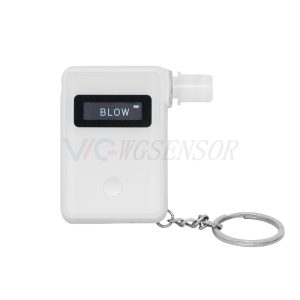Introduction:
Alcohol consumption is a common social activity, but ensuring responsible drinking is crucial to maintaining public safety. Mini alcohol detection devices have emerged as practical tools to help individuals monitor their alcohol levels and make informed decisions. In this brief overview, we will explore the technology behind these devices and their significance in promoting responsible alcohol consumption.
I. Technology Behind Mini Alcohol Detection Devices:
A. Sensor Technology:
1. Miniaturized semiconductor sensors are commonly used in these devices.
2. These sensors detect alcohol in exhaled breath by measuring the concentration of ethanol molecules.
B. Calibration:
1. Devices are calibrated to convert sensor readings into blood alcohol concentration (BAC) levels.
2. Calibration ensures accurate and reliable results, allowing users to make informed decisions about their alcohol consumption.
II. Portable and Convenient Design:
A. Size and Portability:
1. Mini alcohol detection devices are compact and lightweight, making them easy to carry in pockets or purses.
2. Portable design promotes on-the-go monitoring, allowing users to check their BAC levels discreetly.
B. User-Friendly Interface:
1. Most devices feature simple interfaces with easy-to-read displays.
2. Some devices connect to mobile apps for additional features and data tracking.
III. Applications and Significance:
A. Personal Responsibility:
1. Individuals can use these devices to assess their level of impairment before engaging in activities that require focus and coordination.
2. Monitoring helps individuals make responsible decisions about driving or operating machinery.
B. Social Settings:
1. Friends and family can encourage responsible drinking by using these devices at social events.
2. Testing before driving or participating in activities enhances overall safety.
IV. Limitations and Considerations:
A. Accuracy:
1. While generally reliable, mini alcohol detection devices may have limitations in terms of precision.
2. Calibration and regular maintenance are essential for accurate readings.
B. Legal Implications:
1. Mini alcohol detection devices are not a substitute for official law enforcement breathalyzers.
2. Users should be aware of legal implications and understand that these devices are for personal use and awareness.
Conclusion:
Mini alcohol detection devices play a valuable role in promoting responsible drinking by providing individuals with a tool to monitor their alcohol levels. As technology continues to advance, these devices are likely to become more accurate and accessible, contributing to safer and more conscientious alcohol consumption practices.


Please contact us for free quotation by form below. We promise the quickest response within 24 hours: